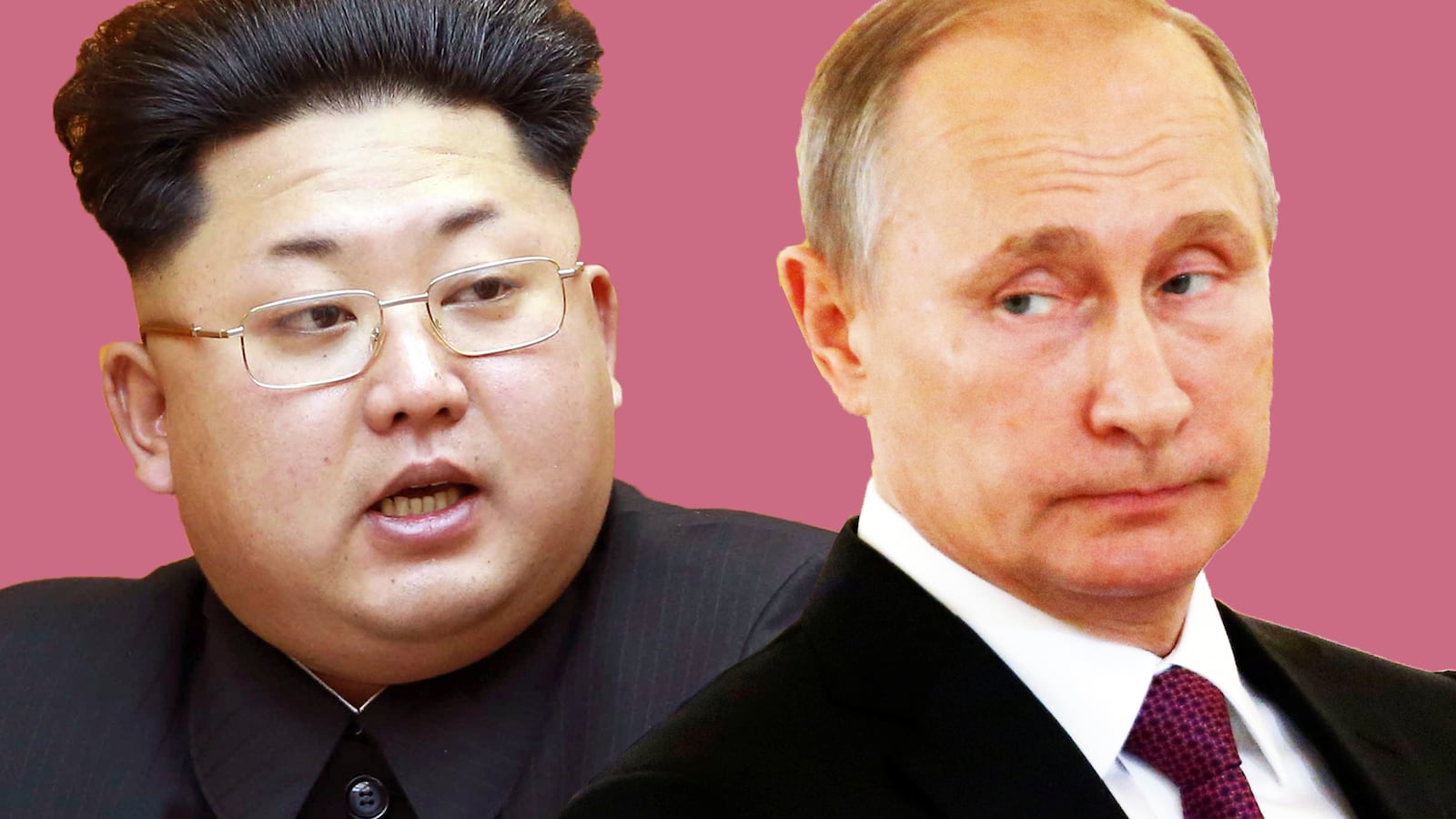“North Korea is ready to hold talks to solve the nuclear crisis without the recognition of its nuclear power status as a pre-condition for the talks,” Sputnik International reported last week, summarizing the views of a delegation of Russian lawmakers who had just visited Pyongyang.
If true, the legislators from the State Duma, by merely showing up in the North Korean capital at the end of last month, achieved a critical diplomatic breakthrough that has eluded, among others, Beijing, Washington, and Seoul. Up to now, Pyongyang has insisted on being recognized as a nuclear weapons state before negotiations begin.
So is the statement from Sputnik true? Or is it, like so many others from the Moscow-based news agency, Putinesque disinformation?
Sputnik’s report is most likely false, but its falsity reveals an important truth about the Kremlin’s ambition with regard to the Democratic People’s Republic of Korea.
Vladimir Putin, apparently, wants to put himself at the center of the international community’s efforts to defuse the North Korean crisis. Think the Russian is acting responsibly? No, he’s not.
The big takeaway from the visit of the Russian delegation, if you believe Sputnik, is that Moscow is uniquely qualified to broker a deal to end the stalemate. “They [the North Koreans] are ready to talk and to hold talks,” said Kazbek Taisayev, head of the Russian delegation. “But they obviously mistrust everyone, except for Russia. My impression is that only Russia could act as a guarantor of such talks.”
Russians touting Russian influence is nothing new, but there is a grain of truth to Taisayev’s self-serving comment. The Kim family, since the days of Kim Jong Il, the father and predecessor to current ruler Kim Jong Un, has liked Russian benefactors more than Chinese ones, even though the latter have been forking over much more cash. Part of the reason is historical—Koreans have been fighting Chinese over the course of millennia—and part is rooted in the present-day arrogance of Beijing overlords, who can’t help but treat the Kims as vassals.
In any event, Putin, for the first time in years, wants to take advantage of his good relations with the Kim family. And he is beginning to implement his plan by moving his pawns. The first gambit was sending the State Duma delegation to the North Korean capital.
The next pawn is Valentina Matviyenko, speaker of the upper house of the Federal Assembly of Russia and thereby third-ranking official in the Russian Federation. “I will be going to North Korea next year,” she said soon after the Nov. 29 launch of the Hwasong-15 intercontinental ballistic missile.
As the Nikkei Asian Review reported, analysts believe Matviyenko is trying to meet Kim Jong Un. If successful, she will bolster Russia’s position in the region because Kim did not meet Xi Jinping’s envoy, Song Tao, in the middle of last month.
Russia’s enhanced profile will come at the expense of the Chinese, who no longer will be seen, as the Japanese magazine put it, as “the key intermediary.” Kim Jong Un, by the way, has yet to meet Xi.
If Matviyenko in fact meets Kim, Washington will have one less reason to cater to Beijing and one more reason to please Moscow.
At the moment, Putin needs some help in the American capital, where, due to Russian meddling in the 2016 presidential campaign, he is viewed as a villain by Democratic Party figures and toxic by Republicans. If, however, Americans believe Putin can broker a deal on North Korean weapons, he could gain lasting influence in the U.S.
To be in a position to broker that deal, Putin has been trying to earn the trust of Kim Jong Un. So far, the Russian leader is doing that by attacking the U.S.
Russian criticism of the Trump administration has been both ferocious and unrelenting. For instance, Sergei Lavrov, the Russian foreign minister, has gone after Nikki Haley, the U.S. ambassador to the United Nations, calling her speech last Wednesday at the Security Council “a really bloodthirsty tirade.”
While the Kremlin is rhetorically supporting Kim, the Russians also are stepping up material aid to Pyongyang, “backfilling” as Haley put it in June. When China reduces assistance to North Korea, Moscow is rushing into the vacuum, shoveling cash to Kim by taking advantage of loopholes in the sanctions regime and, it appears, ignoring these measures from time to time.
Unfortunately, some of Russia’s Pyongyang-pleasing moves have been downright irresponsible. TransTeleCom, since Oct. 1, has been carrying North Korea’s internet traffic by providing a second connection to the world. The Russian company now handles about 60 percent of the North’s traffic, enabling even more Pyongyang hacking and cyberattacks.
It isn’t clear Putin will succeed in winning influence in Beijing and Washington with his North Korean initiative, but one thing seems certain. “Moscow wants another zone of instability,” Stephen Nagy of the International Christian University, in Tokyo, told Deutsche Welle in September.
Creating even more instability in the world’s most volatile region is taking troublemaking to a whole new level, even for Putin.






